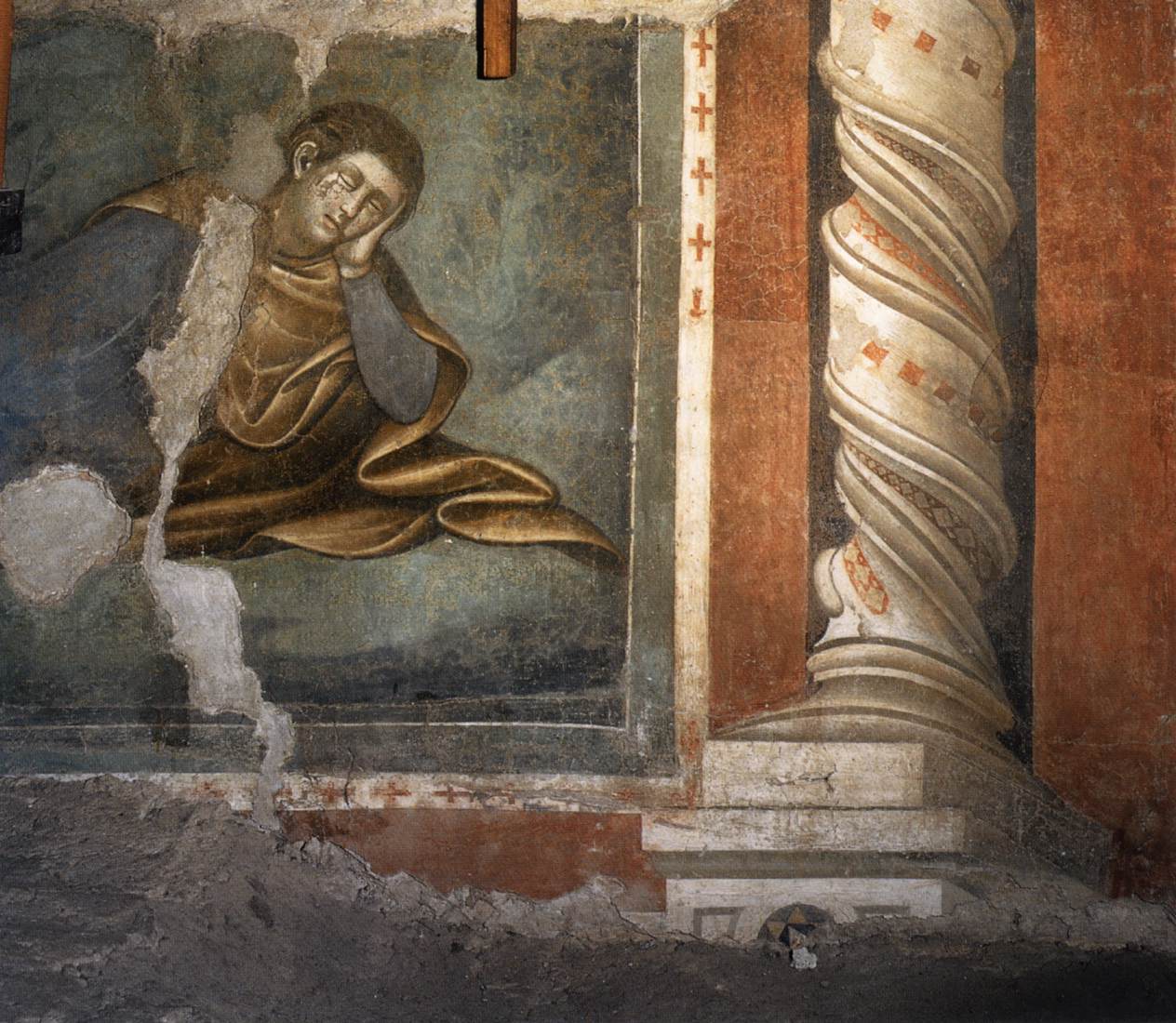The Dream of the Humanities: we are such stuff as dreams are made on.
Quiet! And I will tell you the best of dreams, which came to me in the darkest of nights, with no visible moon. There I lay, wracked by restlessness, when there appeared to me a stone figure of a woman wrapped in garlands and all bedecked with light. Under her feet were the words, “nothing human is foreign to me.”1 Faces of people of all ages surrounded her, happy, sad, jesting, and serious. She had many arms extended outward holding pens, musical instruments, compasses, protractors, and books. Yet her robes were torn and dirty. Her eyes were full of tears: whether for pity of me or for her own sorrow, I could not tell.
And I spoke to her with amazement: “Who are you? What do you mean? Are you here to comfort me or to add to my distress? For I am alone and isolated, as if adrift on a frozen sea. My youthful ambitions are shattered. My hopes for understanding have been met with scorn and silence. Now all I do, it seems, is to dream about what might have been, or once was, many years ago, before the care for speech and language was cast aside and the gaze of all was turned only to science and business.”
And she replied, “There is an old book, compiled by the wise over many years, one that lit the imagination of Leonardo da Vinci. It is a dream dictionary, and in it you will find the phrase, “to see someone dreaming portends the cure.”2 So this vision before you can open the path toward consolation. It is, like all healing paths, an inward one, which you walk alone but also in good company.”
“You speak in riddles,” I said, “and do not answer my questions.”
“Be patient. From patience grows courage, and from courage patience becomes more potent. The cycle is strong and eternal. You can see my state is a sad one, despite my many gifts. In my youth I was admired in the academy and the public square, by old and young. I gave delight to the downcast, strength to the infirm, and led those who knew me to great heights. But in recent times my enemies have gathered, first jealous of my stature and then glorying in my neglect, as my own supporters lost heart. They have persuaded others of my uselessness. I am seen only as a ghost of knowledge past and out of date. But you have seen my true worth.”
“How so?” I said. “Your tale is one of suffering that I experience myself. It is as if I cry into the daytime and in the night season, and am not silent. But there is no response. Even those with whom I work, who profess an allegiance to learning, seem to fall away into their own thoughts of survival, and mask their failing spirits.”
She replied, “The place is not an easy one nor can wholeness be restored so quickly. There may be more fragmentation and splintered lives, until others find the truer path. For the cure is in store for those who listen to my call. My call still sounds even in my absence and my neglect. A wise writer once remarked, “whether summoned or not, the god will be present.” People turn from the inward path, but it will remain open. The path is one beyond calculation, and is hidden from street lamps and public approbation. I alone can light the path to wholeness, if people see me as I am.”
Then she vanished as quickly as she appeared, soaring from view. I awoke refreshed, with a lighter sense of solitude.
1. Cf. Terence, “nil humanum a me alienum puto”
2. Valerio Cappozzo, ed., Dizionario dei sogni nel medioevo: Il ‘somniale Danielis’ in manoscritti letterari (Florence: Olschki 2018): “Hominem in sompnis videre: curamentum.”
For other posts on inwardness, see here.
For other posts on dreams, see here.







Leave A Comment